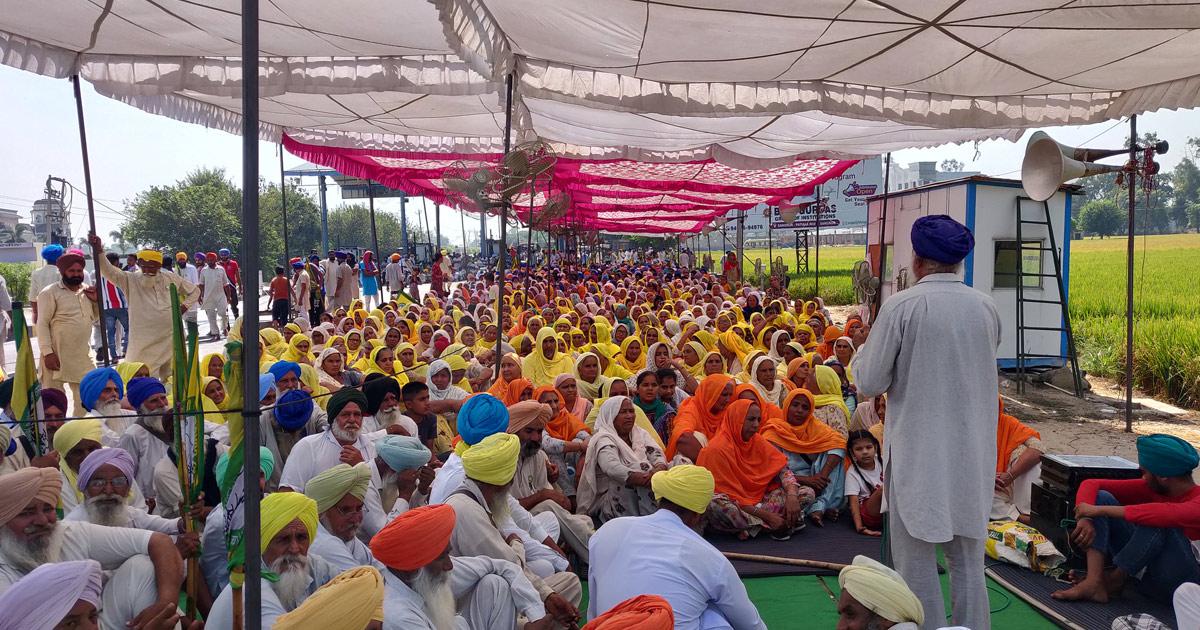
India’s Farming Reform: A Lesson in Interest Group Politics
India’s farmers have been demonstrating in response to the government’s decision to liberalize the agricultural sector. Though economists note that these measures will boost the incomes of farmers, it is unsurprising that the protests have received immense support. Unlike corporate titans, the heavily subsidized farmers of Punjab can weaponize sympathy to further their agenda. Because people rarely equate farming with wealth, these relatively prosperous farmers are well suited to present themselves as victims in need of sympathy. Although downplayed, generating sympathy is a crucial step in the quest to maintain privileges.
If Punjabi farmers had been portrayed as affluent, the media would view them as greedy entrepreneurs. But leveraging the political capital of perceived powerlessness has allowed them to obscure their true status as rent seekers. New legislation provides farmers with the liberty to freely sell their produce without the interference of Agricultural Produce Marketing Committees, also known as mandis. This can potentially raise the incomes of farmers by allowing them to demand prices higher than the fixed minimum support price (MSP) offered by the mandis. Research suggests that farmers are unhappy with the present system preventing them from selling produce outside government-controlled markets. Contrary to the narrative promoted by the media, India’s farmers want free markets in agriculture.
[Read More: “India Takes Small Steps toward Economic Freedom with New Agrarian Reforms” by Sathyajith MS]
But the issue is that Punjabi farmers comprise an influential lobby that has managed to skew the story in their favor. Also missing from the headlines is the fact that earnings from mandi fees are a major source of revenue for the government of Punjab. Because of their role in stimulating India’s Green Revolution in the 1960s, Punjabi farmers have managed to extract government assistance in the form of free electricity and subsidized inputs. Moreover, the system of procurement instituted in the 1960s primarily favors states like Punjab and Haryana. So, they have been able to secure lucrative prices for crops benefiting from the MSP policy. Interestingly, most households are unaware of the MSP policy, and it discriminates against numerous farmers since they do not specialize in cereals. The truth is that only 10 percent of total crops are sold at MSP.
As such, Punjabi farmers are opposing reforms that seek to remove privileges. Economist Ashok Gulati argues that the Punjabi farming household records the highest income in India at nearly 2.5 times the income that an average farming household in India receives, while their annual subsidies average $1,626 per family. It is apparent that Punjabi farmers are defending their interests at the expense of society. Yet globally people are expressing solidarity with their presumed plight. However, we should not be shocked, because this has a psychological basis. Punjab farmers are arguing that in the absence of government regulations the monopolization of the market by big corporations will result in them being exploited. People are naturally skeptical of change, so the farmers have exploited fear of the unknown to generate sympathy for a selfish cause. Even if some admit that regulations are costly, they are reluctant to embrace change. People often prefer the certainty of an inefficient present to the dynamism of an unknown future.
Pius Fischer in a widely cited text clearly explains the role of uncertainty in aiding rent seeking: “Incomplete information and limited rationality create fertile ground for rent-seeking activities…. It can be assumed that rent-seekers find it easier to influence citizens if they are uncertain and do not understand the impact of reform policies.” Citing Robert H. Bates and Anne O. Krueger (1993) he informs us that frequently perceptions are shaped by the activism of rent seekers: “Under conditions of uncertainty, people’s beliefs of where their economic interests lie can be created and organized by political activists; rather than shaping events, notions of self-interest are instead themselves shaped and formed.”
Intriguingly, Fischer also lists identity bias as a major boost to rent-seeking activities: “The identity of losers in contrast to that of potential winners, is better known and thus creates stronger sympathy among the population. Living in a world of incomplete information and rationality, powerful rent-seeking groups may even find support among members of the social classes exploited by them.” Although many sympathize with the Punjabi farmers, the latter have brutally exploited gaps in the public’s grasp of the situation to evoke sympathy, thus making people inclined to assist them in their desire to entrench privileges. However, the reality is that the Punjabi farmers, like crony capitalists, deserve our ire.




